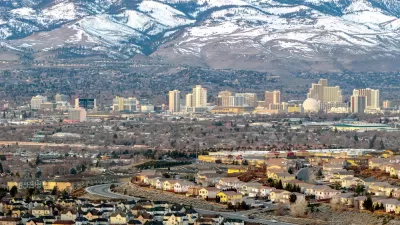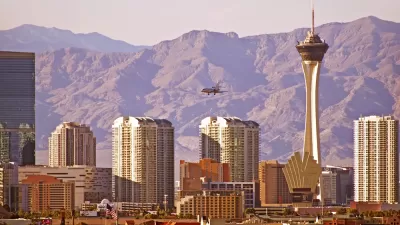Seen as a source of economic development and easy money for cities (struggling or not) throughout North America, casino projects are neither a revenue panacea nor the win-win "economic bullet" that supporters claim, argues Richard Florida.
As New York State looks to join the ranks of those legalizing "full-scale" gambling, Florida makes the argument against the "powerful allure" of "big ground-breakings; new jobs in construction, hospitality and gaming tables; and substantial new sources of public revenue."
"While politicians and casino magnates seek to sell gambling complexes to the public as magic economic bullets," says Florida, "virtually every independent economic development expert disagrees — and they have the studies to back it up."
"In his 2004 book 'Gambling in America: Costs and Benefits,' Baylor University economist Earl Grinols totaled the added costs that cities must pay in increased crime, bankruptcies, lost productivity and diminished social capital once they introduce casinos to their economic mix. He found that casino gambling generates roughly $166 in social costs for every $54 of economic benefit. Based on this, he estimates that the 'costs of problem and pathological gambling are comparable to the value of the lost output of an additional recession in the economy every four years.'”
While the three cities - Reno, Las Vegas, and Atlantic City - that only three decades ago had a monopoly on casinos have learned not to rely on unstable gambling revenues, and seek to diversify their economies, places like Detroit, Cleveland, Chicago, Boston, and Toronto are looking to get into the gambling game. Florida suggests officials in these cities think twice before they roll the dice.
FULL STORY: Gambling away our cities

Planetizen Federal Action Tracker
A weekly monitor of how Trump’s orders and actions are impacting planners and planning in America.

Restaurant Patios Were a Pandemic Win — Why Were They so Hard to Keep?
Social distancing requirements and changes in travel patterns prompted cities to pilot new uses for street and sidewalk space. Then it got complicated.

Map: Where Senate Republicans Want to Sell Your Public Lands
For public land advocates, the Senate Republicans’ proposal to sell millions of acres of public land in the West is “the biggest fight of their careers.”

Maui's Vacation Rental Debate Turns Ugly
Verbal attacks, misinformation campaigns and fistfights plague a high-stakes debate to convert thousands of vacation rentals into long-term housing.

San Francisco Suspends Traffic Calming Amidst Record Deaths
Citing “a challenging fiscal landscape,” the city will cease the program on the heels of 42 traffic deaths, including 24 pedestrians.

California Homeless Arrests, Citations Spike After Ruling
An investigation reveals that anti-homeless actions increased up to 500% after Grants Pass v. Johnson — even in cities claiming no policy change.
Urban Design for Planners 1: Software Tools
This six-course series explores essential urban design concepts using open source software and equips planners with the tools they need to participate fully in the urban design process.
Planning for Universal Design
Learn the tools for implementing Universal Design in planning regulations.
Heyer Gruel & Associates PA
JM Goldson LLC
Custer County Colorado
City of Camden Redevelopment Agency
City of Astoria
Transportation Research & Education Center (TREC) at Portland State University
Camden Redevelopment Agency
City of Claremont
Municipality of Princeton (NJ)




























